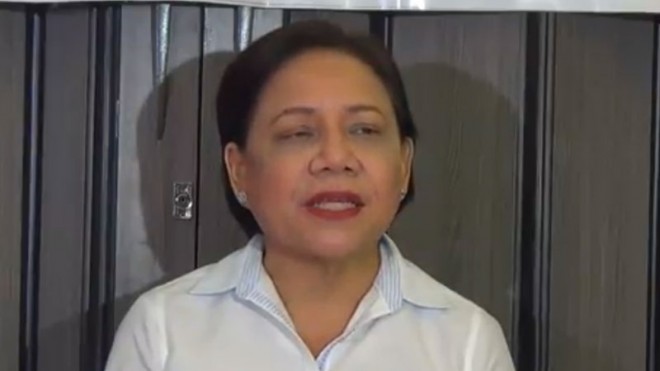The sale of synthetic rice in the country has raised alarm bells about its effects on the health of people if consumed, prompting the Senate and the health department to investigate the matter.
Sen. Cynthia Villar on Thursday said the Senate would look into the possible effects that synthetic rice would have on people’s health.
To determine the composition of the “fake rice,” Villar, who chairs the Senate committee on agriculture and food, will invite experts to a hearing scheduled next week.
Food safety is a crucial aspect of the issue, she said.
“This is … to inform the public what this fake rice really is. We have to understand this so we will be careful. What is the health implication of fake rice?” she said at the Kapihan sa Senado forum.
Health authorities are coordinating closely with the National Food Authority (NFA) to get more information on the synthetic rice smuggled into the country.
The NFA Food Development Center in Taguig City, where the vNFA sent samples of “fake rice” after someone came out in the open and complained about the rice, will release the results of the laboratory analysis today.
Plastic rice was first reported in Davao City.
“It’s not supposed to be there but it’s there and some people have eaten it. [We are going to find out] what its possible effects on the human body are,” said Health Undersecretary Kenneth Hartigan-Go.
Made in China
In Davao City, NFA officials are urging the public not to panic as they await test results of samples believed to be fake rice.
“There’s no cause for alarm yet,” said NFA provincial manager Virgilio Alerta. “We are not yet going to open any warehouse unless we can trace and verify the questionable rice samples.”
The synthetic rice—made of potatoes, sweet potatoes and plastic shaped into grains—is reportedly being manufactured in China and exported to Asian countries, like Indonesia and Vietnam. Materials used in making pipes and cables were also allegedly used in the fake grain.
Testing samples
Health Undersecretary Go said the Food and Drug Authority (FDA) would be checking the contents of the fake grains to find out what risk they posed to human health if eaten.
The NFA earlier said that scientists were having difficulty testing the samples the agency received because these were less than the one kilo needed for results to be conclusive.
“The FDA is coordinating now closely with NFA on its observations and findings in order to ascertain what kind of material this is,” Go told reporters. “But definitely it does not look like food. I have not seen it myself but we are still validating.”
Dianne Silva, the Davao director of the NFA, told reporters that most of the complaints the agency were receiving about fake rice were false, although they were awaiting the release on July 3 of the laboratory results of the first samples of alleged fake rice from Davao City.
“Once, we traced the source of the questionable rice in Mintal (district), which was also the subject of a complaint. We bought [rice] and tried cooking it, and we did not see anything wrong with it,” Silva said.
Be vigilant
“Maybe, the consumers were complaining because the rice they got already stayed too long in their hands. So, it was already spoiled,” she added.
But Silva urged consumers to remain vigilant and to immediately alert the NFA if they find something abnormal in the rice they buy.
Silva said the NFA was closely coordinating with the Bureau of Customs and other concerned government agencies in tightly watching possible points of entry for the reported fake rice.
Villar said the synthetic rice might have been smuggled into the country, since the NFA had said that there would be no more import permits to be given to private entities.
Mixed with real thing
Earlier, Villar called on the Department of Agriculture and NFA to investigate the reported proliferation of synthetic rice. She also warned that the fake rice could be mixed with the real rice.
Aside from a nationwide inspection of warehouses and rice shops to determine who is peddling the fake rice, the senator said special attention should be given to small shops in rural areas where synthetic rice could be sold discreetly.
Economic sabotage
Villar said she was pushing for the approval of a bill that would categorize the smuggling of synthetic rice as economic sabotage. Economic sabotage is a nonbailable offense.
The measure will be presented to the plenary when session resumes later this month.
She said she expected the measure to be approved soon, adding that she would be surprised if it would not be passed during the Aquino administration.
RELATED STORIES
NFA, DA urged to go after peddlers of fake rice
Duterte to make smugglers eat their fake rice
